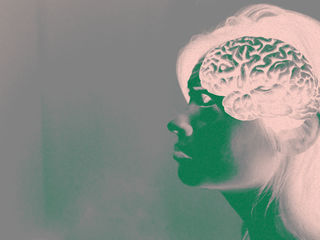Cognition
Can't Trust Thinking? Then What?
There are substantial benefits when one creates doubt in thinking.
Posted June 23, 2019

I am writing this as a follow-up to my last post, “Whatever Helps You Sleep at Night,” as well as many of my posts that address not trusting your thinking (e.g., "The Truth Won’t Set You Free," "I’m Full of it, and So Are You," "The Big Lie," and "The Top 20 Ways You are Lying to Yourself"). In my last post, I provide more evidence that thinking and memory cannot be trusted. In this post, the discussion will focus on recognizing that your thoughts are not truths and the benefits therein.
My post, “The Top 20 Ways You Are Lying to Yourself,” discussed some of the benefits of loosening one's attachment to one’s own thoughts. The end of that post suggests that by doing so, one is closer to enlightenment. The idea is that in these moments of creating doubt in your thinking, you are more authentically in the moment, more mindful of the present, and thereby closer to enlightenment. Additionally, when one is able to observe their mind rather than be dragged along by it, one is calmer and more objective. A post that builds on this and aims to help the reader utilize his or her mind more effectively is, “Talk your brain into being a better servant.”
Two recent podcasts I heard added to this myriad of benefits of creating doubt and distrusting your own thinking. In the podcast, “You Are Not So Smart,” during the episode “Post Truth,” expert Moira Dillan raises the idea of cognitive empathy (22:50). Through the lens of cognitive empathy, one acknowledges that others have perceptions that differ, that they may not see the world as you do, but that doesn’t change the fact there is one world. Dr. Dillan is proposing that we all should understand that our perception and thinking distort whatever objective reality is, and thereby have empathy for others’ perceptions. In other words, one relaxes one's truth, accepts that one’s perception of reality is distorted, and accepts others’ perceptions as their truth. This cuts down on feeling like others are lying or purposely distorting the “truth” to benefit themselves and reduces arguments about “what actually happened.”
In an excellent example of this from the same podcast, expert Pascal Wallisch discusses how his studies have demonstrated that the perception of color is influenced by one’s history. He explains theories about how “the dress” was seen as blue and black or white and gold had to do with how much time one spends in the sun daily (45:50). He discusses how other personal experiences (such as how strongly you believe sneaker laces are white) influences the perception of color in experiments (50:05). Again, this suggests there is a different reality for people with different beliefs or backgrounds. The idea remains the same: Accept that people see things differently, and thereby understand there are different ways of seeing the same thing, and this will result in more cognitive empathy.
Another podcast that illuminated the benefits of creating doubt in one’s thinking was, “This American Life, Episode 676, Here’s Looking at You Kid.” In the second segment, “Grownups Know Things,” a story is told about a woman who is taken from her mom and lives with her dad due to the alleged abuse her mother was committing. In my last post, I mentioned the work of Elizabeth Loftus with false memories, and she is interviewed in this segment, as the victim’s case was one Dr. Loftus investigated. (As a side note, it was my impression Dr. Loftus would have benefitted from some cognitive empathy with this case).
Eleanor Gordon-Smith tells the story of Nicole, the child victim, who in the end doesn’t know if she was abused by her mother or not. At the end of the interview, Nicole discusses how she has to be OK with this looming uncertainty that is such a part of her identity (Is she a victim, a survivor, or something else?) (56:55). She comes to peace with uncertainty, which many find difficult to do.
What this instructs us, if you put the two aspects of this post together, is that one should be uncertain about one’s thinking, and should make peace with that. This is not an easy task. Human brains are geared to making sense of things, figuring things out. It is the brain’s nature. Most people come to believe something, and as was discussed in the previous post, even when the belief is changed, many are blind to it. It is easier to believe one side or another, rather than live with ambiguity. The lesson here is that perhaps ambiguity is closer to truth. Perhaps the ability to live with ambiguity is closer to enlightenment. Maslow, in his characteristics of self-actualizing people, believed so. “Self-actualizing people are less afraid and more comfortable with the unknown. They not only have a greater tolerance of ambiguity, but they actively seek it…” (Feist, Feist, and Roberts, p.273).
In conclusion, there are several benefits to questioning one’s thinking and accepting that one does not have an accurate grasp of “the truth.” One may become more objective, more present, develop cognitive empathy, reduce conflict, become more comfortable with ambiguity, have more control over thinking, and perhaps be closer to self-actualization and enlightenment. It is certainly not an easy task. One has to fight against the default functioning of the mind. To me, the benefits are well worth it, and perhaps the goal of an enlightened society.
Copyright William Berry, 2019
References
Feist, J., Feist, G., Roberts, T., 2018., Theories of Personality, E.9., McGraw-Hill Education, New York, N.Y.
Glass, I., 2019., This American Life, Episode 676, Here’s Looking at You Kid, Act 2: Grownups Know Things. Retrieved from: https://www.thisamericanlife.org/676/heres-looking-at-you-kid
McRaney, D., 2019., You Are Not So Smart, Episode 155, Post Truth. Retrieved from: https://soundcloud.com/youarenotsosmart/155-live-in-new-york-post-truth


